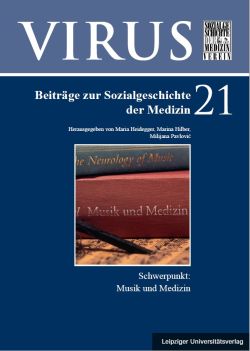
VIRUS Band 21, pp. 233-244, 2023/03/22
Schwerpunkt: Musik und Medizin

The early period of castrato singing, i. e. the late 16th and early 17th centuries, has received little scholarly attention. Therefore, the aim of my current doctoral dissertation project at the University of Music Weimar is to examine how the rise of castrato singing came about, looking at contemporary performance practice and drawing on sources from multiple other disciplines. Here, I present interim results from my research into medical history, starting with an outline of the state of the art of surgery and barber-surgeons, and of the important development of plastic surgery as an art that helps to (re)create natural beauty. The second part summarizes what (learned) physicians of the time considered to be consequences of castration. Castrati – or eunuchi – were e. g. described as cold and damp, lacking of vital heat and thus effeminate, with higher, tender voice and softer flesh; as for character traits, they were seen as phlegmatic and vicious. Third, referring to contemporary theories on affects and their transmission as well as treatises on singing technique, it is reflected that due to their bodily constitution the castrati could have been particularly suitable for the singing profession, especially for the embodiment of soloistic affect music.
Keywords: Castrato singers, surgery, humoral pathology, affects, Italian peninsula, late 16th and early 17th centuries